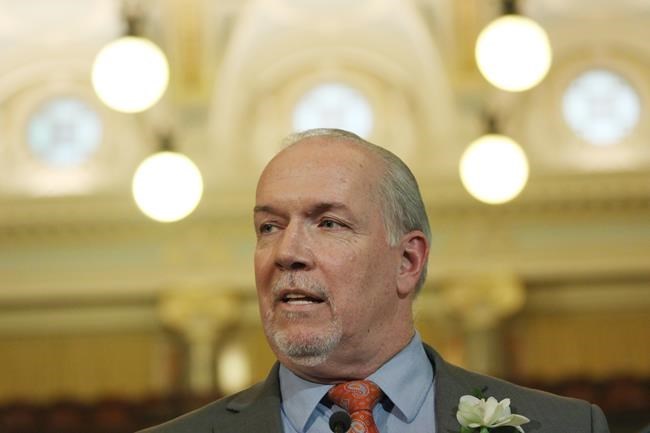 There’s a reason why the NDP cabinet had so much trouble over the past two weeks defending the discriminatory pay gap it is creating in the social-services sphere based on union membership.
There’s a reason why the NDP cabinet had so much trouble over the past two weeks defending the discriminatory pay gap it is creating in the social-services sphere based on union membership.
It’s because it is indefensible.
Cabinet ministers have deflected more than 30 questions in the legislature about why union workers are going to get a raise that non-union workers aren’t. Mostly by expressing outrage that the opposition B.C. Liberals would dare even ask, given their record over the years.
That general type of comeback is entirely typical of question period during certain parts of the show. But only up to a point. To see the entire government rely almost entirely on the “you guys were even worse” defence for the better part of two weeks is striking.
It confirms the impression that there is no answer the government is willing to state publicly. So the rationale is most likely a political calculation.
Premier John Horgan was asked about the gap late last week. While he didn’t fully explain himself, his answers did give a glimpse of the government’s attitudes about the issue.
The first one is a bit of resentment about the objections.
“There are a whole host of contractors that provide services,” Horgan told reporters. “Only one of those groups has decided to take to the steps of the legislature [for a protest rally two weeks ago]. The others are working to establish tables. … The only way forward on these issues is through co-operation, and we’re attempting to do that with almost all the groups involved.”
He also referred to “individual groups that have aligned themselves with the Liberals in the interests of question-period fodder.”
There’s that resentment again. But he did venture further into the thinking behind the gap. Horgan said the non-union agencies that supply services “cannot guarantee to us that any increase in resources we transfer to them will go directly to wages.”
“In a collective bargaining situation, on the union side you know the dollars are going to wages because that’s negotiated.”
The idea that government can’t get assurances from non-union agencies about where they will spend money the government provides is debatable. The government holds most of the cards in that area. It provides much of the finding in the groups’ budgets. It’s hard to picture government not having the clout to see a targeted budget hike go where it wants it go.
The argument is specifically about a $40-million pool of money provided in March for low-wage redress. The provincial budget provided an average two per cent a year wage hike over the next three years across the spectrum of services. But the additional funds are targeted only for unionized providers.
Shares vary, but it amounts to an extra four per cent a year over the three-year contract. That’s about 12 per cent more for the unionized staff than the non-unionized people, which is enough to open a sizable gap. For all the blaming of the previous government, it’s going to be an NDP gap. They have designed it, and they will have to own it.
That didn’t stop Horgan from joining the chorus of ministers.
“The fact the Liberals chose to try and cleanse themselves from ignoring these issues for a decade and a half by asking 30 questions is not sufficient in my opinion to absolve them for the primary responsibility for creating the problem.”
Just So You Know: Horgan also provided another tidbit of information about the controversy. At the Thursday scrum, he said he’d just met the previous night with ministers Mike Farnworth (public safety), Carole James (finance), Shane Simpson (social development) and Katrine Conroy (children and family development). The meeting was “to continue to work toward an answer that’s been given, although not accepted by the opposition: That these are systemic challenges that can’t be fixed in one round of bargaining.”
So while they aren’t explaining themselves publicly, there are cabinet-level talks going on privately.



